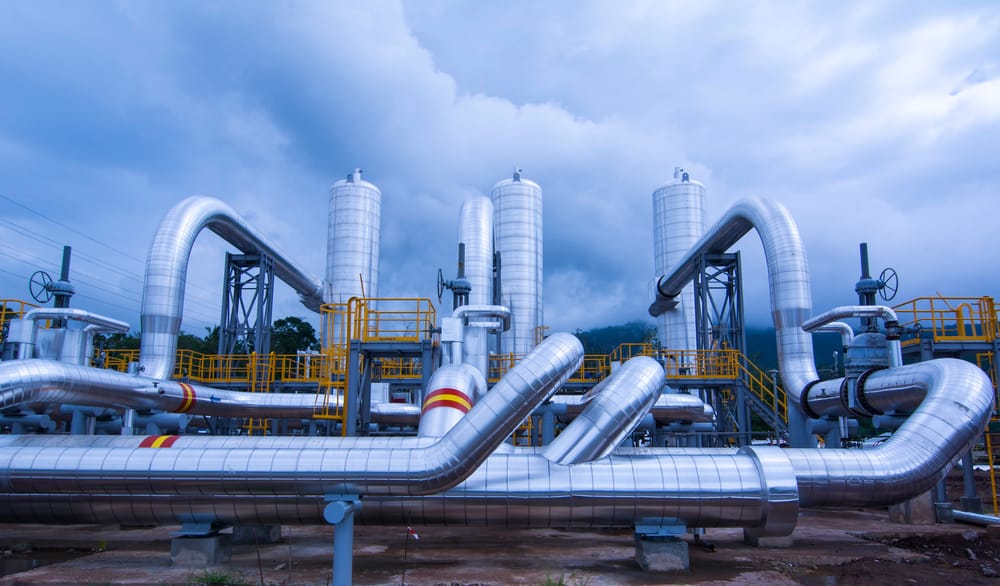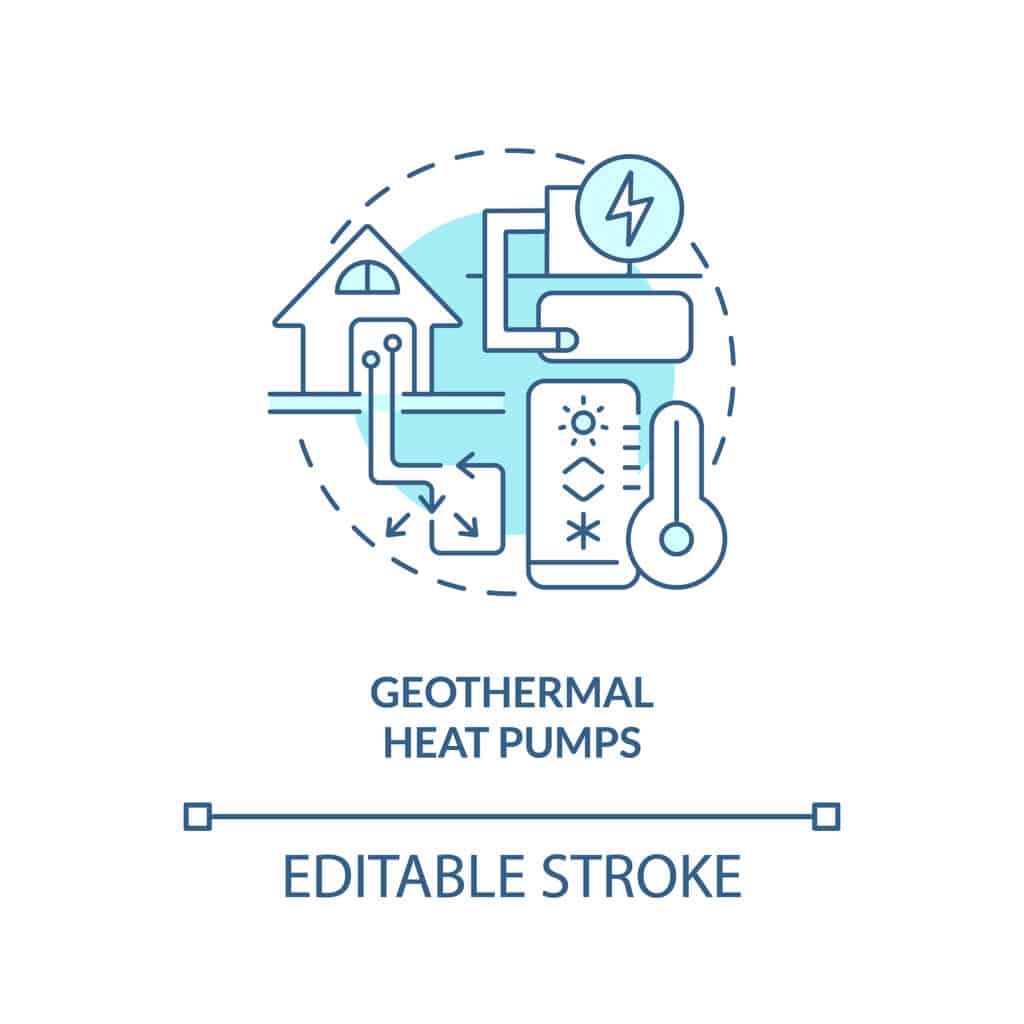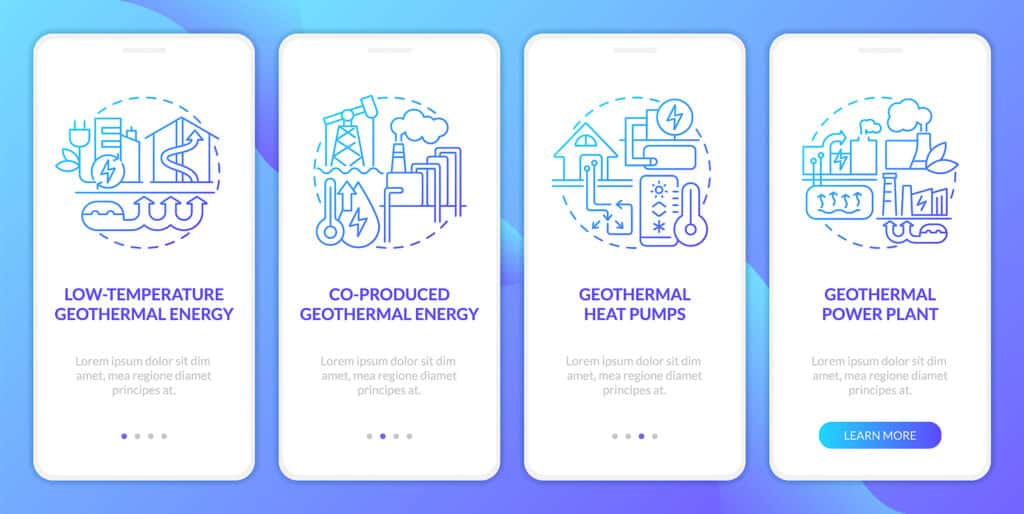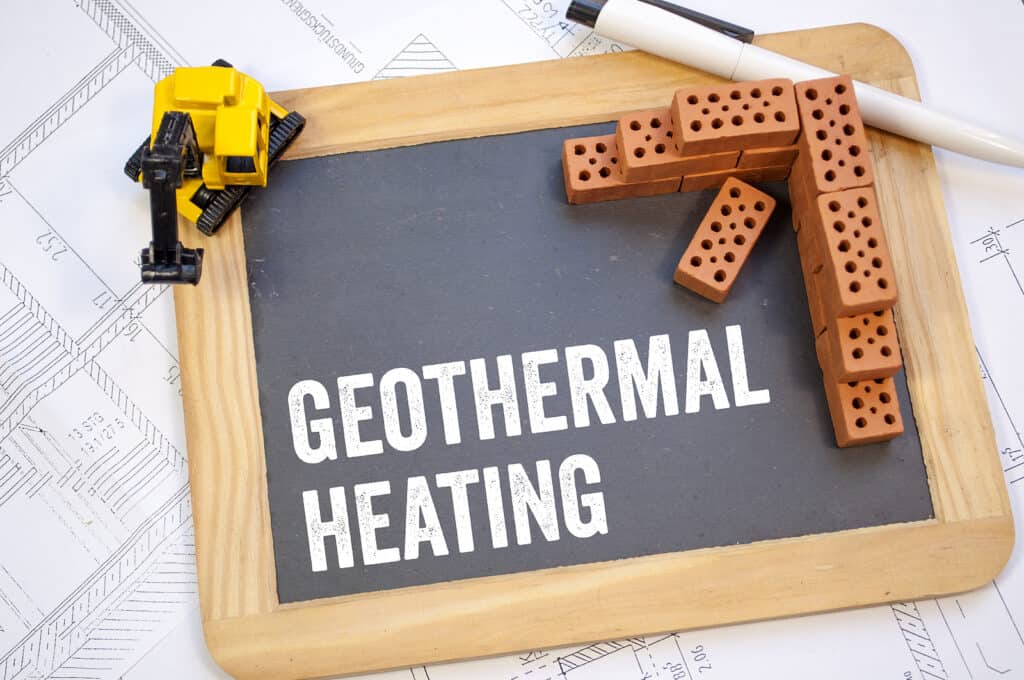Discover the World of Geothermal Heat Pumps: A Beginner's Handbook on System Types and the Advantages
As a company with substantial energy requirements, such as our manufacturing plant, we have discovered the incredible benefits of geothermal heat pump systems. These systems present an efficient and eco-friendly way of maintaining the optimal temperature in our facility. Unlike traditional HVAC systems, geothermal heat pumps utilize the consistent temperature of the earth to power our heating and cooling needs.
We are aware that the technology behind geothermal heat pumps has been around for many decades, but it is gaining popularity now more than ever due to the surging demand for sustainable energy sources. For our company, this has become a game-changer in achieving our energy efficiency and cost-saving goals.
What are Geothermal Heat Pumps?
Geothermal heat pumps, sometimes referred to as ground source heat pumps, are sophisticated systems designed to harness the Earth's natural heat reservoir beneath its surface. These innovative systems utilize the stable and consistent temperatures found underground to efficiently provide not only heating and cooling but also water heating for residential, commercial, and industrial applications.
Unlike conventional HVAC (Heating, Ventilation, and Air Conditioning) systems that rely on the fluctuating temperature of the outside air, geothermal heat pumps take advantage of the Earth's geothermal energy. The Earth's subsurface temperatures are relatively constant throughout the year, regardless of the season or weather conditions above ground. This consistency allows geothermal heat pumps to function with remarkable efficiency and reliability, regardless of the external climate.

How Do Geothermal Heat Pumps Work?
Geothermal heat pumps operate through a highly efficient and eco-friendly process that involves three main components: ground loops, a heat pump unit, and a distribution system.
Ground Loops
At the heart of geothermal heat pump systems are the ground loops, a network of pipes buried deep underground or submerged in nearby water sources. These pipes are filled with a heat exchange fluid, often a mixture of water and antifreeze. The ground loop serves as the conduit for harnessing the Earth's consistent thermal energy. During the heating season, the fluid circulating through the pipes absorbs the natural warmth from the Earth, which remains relatively constant throughout the year. This absorbed heat is then transported to the heat pump unit inside the home.
In the cooling season, the geothermal system operates in reverse. The heat pump extracts heat from the indoor air and transfers it to the heat exchange fluid within the ground loops. This heat is then efficiently dissipated into the cooler ground, effectively cooling the indoor spaces.
Heat Pump Unit
The geothermal heat pump unit is a critical component located within the home. This unit is responsible for facilitating the exchange of heat between the heat exchange fluid from the ground loop and the indoor air. Depending on the season, the heat pump can either cool down the indoor air or heat it up.
During the heating season, the heat pump draws the warm heat exchange fluid from the ground loop and uses it to warm the cooler indoor air. It achieves this by transferring the heat from the fluid to the indoor air through a heat exchanger. In the cooling season, the heat pump reverses its operation, absorbing heat from the indoor air and transferring it to the heat exchange fluid.
Distribution System
To distribute the conditioned air throughout the home, most geothermal heat pump systems employ a ductwork distribution system. The conditioned air, either heated or cooled by the heat pump, is delivered to various rooms in the house through these ducts. This allows for consistent and comfortable indoor temperatures throughout the living spaces.
In some geothermal heat pump systems, especially in radiant heating setups, ductwork might not be used. Instead, the heat pump transfers the heat directly to a network of pipes or tubes installed in the floor, walls, or ceiling of the building. The heat radiates from these surfaces, providing a gentle and comfortable warmth to the indoor spaces.

Types of Geothermal Heat Pump Systems
Geothermal heat pump systems come in various configurations to suit different spatial and heating/cooling requirements. Below are the three main types of geothermal heat pump systems, each with its unique installation method and application:
Horizontal Loop System
The horizontal loop system stands as the most prevalent and widely used geothermal heat pump configuration. In this setup, a series of pipes is buried horizontally in trenches, typically around six feet deep, beneath the ground. The length and layout of these trenches vary depending on the heating and cooling demands of the building or property. Within these pipes flows a mixture of water and antifreeze, which acts as the heat exchange fluid. As the fluid circulates, it absorbs the Earth's thermal energy and carries it into the building for heating or releases heat into the ground for cooling.
The major advantage of the horizontal loop system is its relative ease of installation, making it particularly well-suited for residential applications. It is also a viable option in areas with ample available land. However, its horizontal spread demands sufficient space, making it impractical for properties with limited outdoor areas.
Vertical Loop System
When limited space prohibits the installation of a horizontal loop system, the vertical loop system serves as an effective alternative. In this design, a series of pipes are drilled vertically into the ground, reaching depths of up to 400 feet or more. These deep boreholes are then connected to the heat pump, and like the horizontal loop system, they contain the water and antifreeze mixture.
The vertical loop system incurs higher installation costs due to the expenses associated with drilling deep boreholes. However, it becomes feasible in areas where horizontal space is scarce or insufficient. This makes it a suitable choice for both small residential lots and larger commercial or industrial applications.
Pond/Lake Loop System
The pond/lake loop system utilizes a nearby body of water, such as a pond or lake, for its heat exchange process. A series of pipes is placed at the bottom of the water body, and these pipes are connected to the heat pump system. The same water and antifreeze mixture is used as the heat exchange fluid.
Among the three types, the pond/lake loop system is the least expensive to install, primarily because it utilizes a readily available water source. However, it requires access to a suitable body of water nearby, which may not be feasible for all locations. For properties with access to a pond or lake, this system offers a cost-effective and energy-efficient solution for heating and cooling needs.

Factors to Consider When Choosing a Geothermal Heat Pump System:
Heating and Cooling Requirements
The first crucial factor to consider is the specific heating and cooling requirements of the building or property. A thorough assessment by a professional is essential to accurately determine the optimal type and size of the geothermal heat pump system needed. Factors such as the building's size, insulation, occupancy, and desired indoor temperature levels will influence the selection process.
Available Land
The amount of available land plays a significant role in choosing the appropriate geothermal heat pump system. For properties with ample outdoor space, a horizontal loop system may be the most viable and cost-effective option. Horizontal loops are typically buried in trenches, and the length and configuration of these trenches are dependent on the property's heating and cooling needs. However, if space is limited, a vertical loop system or a pond/lake loop system may be more suitable.
Access to a Body of Water
For those considering a pond/lake loop system, access to a suitable body of water near the building is essential. The body of water must meet specific size and depth requirements to ensure effective heat exchange. While the pond/lake loop system can be an economical choice for those with access to a water source, it may not be feasible for properties located far from such bodies of water.
Cost
The cost of the geothermal heat pump system is a significant consideration for most individuals and businesses. Horizontal loop systems are generally less expensive to install, making them an attractive option for residential applications. However, in areas where space is limited or when considering larger commercial or industrial projects, the vertical loop system might be necessary, even though it involves higher drilling costs. A comprehensive cost-benefit analysis should be conducted to determine the best long-term investment.
Climate
The local climate also plays a vital role in selecting the right geothermal heat pump system. In regions with extremely cold winters or extremely hot summers, geothermal heat pump systems remain highly effective. However, in areas with mild climates and minimal temperature fluctuations, other heating and cooling options might be more suitable. Geothermal heat pump systems perform optimally when there are substantial differences between outdoor and indoor temperatures, allowing them to leverage the Earth's stable thermal energy effectively.

Advantages of Geothermal Heat Pump Systems:
Superior Energy Efficiency
Geothermal heat pump systems stand out for their exceptional energy efficiency. By harnessing the Earth's stable and consistent temperature, they can significantly reduce heating and cooling costs for homeowners and building owners. Compared to conventional HVAC systems, geothermal heat pumps can achieve up to an impressive 70% reduction in energy consumption, leading to substantial long-term savings.
Environmentally Friendly
One of the most significant advantages of geothermal heat pump systems is their eco-friendliness. These systems produce no direct greenhouse gas emissions, making them an environmentally responsible choice for heating and cooling. By utilizing renewable energy sources – the Earth's thermal energy – they contribute to a cleaner, greener planet and aid in mitigating the effects of climate change.
Extended Lifespan
Geothermal heat pump systems boast a long operational lifespan, typically lasting 25 years or more with proper maintenance. In comparison, traditional HVAC systems typically have a shorter lifespan, often lasting around 15 years. The extended lifespan of geothermal heat pumps translates to reduced maintenance and fewer replacements over time, offering increased reliability and cost-effectiveness in the long run.
Quiet and Discreet Operation
Another advantage of geothermal heat pump systems is their quiet and unobtrusive operation. Unlike traditional HVAC systems that often generate noticeable noise when running, geothermal heat pumps operate quietly. The indoor unit, which handles the heat exchange process, operates with minimal sound, providing a more peaceful and comfortable environment for occupants.
No Outdoor Units
Geothermal heat pump systems eliminate the need for bulky and unsightly outdoor units commonly associated with traditional air conditioning systems. The entire heat exchange process occurs indoors or underground, which means there are no external components taking up space or affecting the aesthetics of the property. This feature is especially beneficial for homeowners concerned with curb appeal or limited outdoor space.
Versatility
Geothermal heat pump systems offer versatile applications beyond traditional heating and cooling. They can be configured to provide hot water for domestic use, further enhancing their efficiency and reducing reliance on separate water heating systems.
Incentives and Tax Credits
Governments and organizations often incentivize the adoption of renewable energy systems, including geothermal heat pumps, through various financial incentives and tax credits. These incentives can help offset the initial installation costs and make geothermal heat pump systems even more financially attractive for property owners.
FAQs About Geothermal Heat Pump
How much does a geothermal heat pump cost?
The cost of a geothermal heat pump can vary depending on several factors, including the size of the system, the complexity of the installation, the location of the property, and any additional features or accessories. On average, the initial investment for a geothermal heat pump system can range from $10,000 to $30,000 or more. While the upfront cost may be higher than traditional heating and cooling systems, geothermal heat pumps offer significant long-term savings on energy bills due to their high efficiency and low operating costs.
How does a geothermal heat pump work?
A geothermal heat pump works by utilizing the stable temperature of the Earth's crust to provide heating, cooling, and hot water for residential and commercial buildings. The system consists of a heat pump unit installed inside the building and a loop system buried underground. During the winter, the heat pump extracts heat from the relatively warmer ground and transfers it into the building, providing warmth. In the summer, the process is reversed, and the heat pump transfers heat from the building to the cooler ground, providing efficient cooling. The underground loop system can be either an open loop, using water from a well, or a closed loop, circulating an eco-friendly fluid (usually a mixture of water and antifreeze) through a series of buried pipes.
What is a geothermal heat pump?
A geothermal heat pump, also known as a ground source heat pump, is an energy-efficient heating and cooling system that uses the Earth's constant temperature to regulate indoor climate. It taps into the renewable thermal energy stored in the ground to provide heating during colder months and cooling during warmer months. Geothermal heat pumps are considered environmentally friendly and can significantly reduce greenhouse gas emissions and reliance on fossil fuels for heating and cooling needs.
Closed loop geothermal heat pump?
It is one of the two main types of geothermal heat pump systems, the other being an open loop system. In a closed loop setup, a continuous loop of pipes is buried underground, usually in a horizontal, vertical, or pond/lake configuration. The pipes are filled with a water and antifreeze solution that circulates through the loop, absorbing heat from the ground during the heating mode and releasing heat into the ground during the cooling mode. The closed loop design ensures that the fluid remains contained within the system and does not exchange with the external environment.
Installing a geothermal heat pump?
It is involves several key steps. First, a thorough site assessment is conducted to determine the feasibility and appropriateness of a geothermal system for the property. Next, the appropriate type of loop system (closed or open) is chosen based on factors such as available land space and water resources. The heat pump unit is then installed inside the building, connected to the loop system, and integrated into the existing HVAC (Heating, Ventilation, and Air Conditioning) system. Proper sizing and positioning of the components are crucial for optimal performance. Professional installation by qualified geothermal contractors is recommended to ensure a safe and efficient setup. Additionally, homeowners may need to consider obtaining necessary permits and incentives, which can vary based on local regulations and incentives for renewable energy installations.
Conclusion
In conclusion, as a company with substantial energy requirements, our journey into the world of geothermal heat pump systems has been nothing short of transformative. Embracing this innovative technology has allowed us to tap into the Earth's natural energy reservoir, revolutionizing the way we maintain the optimal temperature within our manufacturing plant. Geothermal heat pumps have proven to be an efficient and eco-friendly solution, aligning perfectly with our commitment to sustainability and cost-saving initiatives.
Discovering the versatility and advantages of geothermal heat pump systems has been eye-opening. From understanding the intricate workings of ground loops, heat pump units, and distribution systems, to exploring the different types of geothermal configurations, we have gained a deeper appreciation for the power of geothermal energy. By harnessing the Earth's stable temperature, these systems provide us with a reliable source of heating, cooling, and even hot water, contributing to our overall energy efficiency and reducing our carbon footprint.
Sources
Energy.gov. (2021, January 28). Geothermal Heat Pumps. Retrieved from https://www.energy.gov/energysaver/heat-and-cool/heat-pump-systems/geothermal-heat-pumps
Geothermal Energy Association. (n.d.). What is Geothermal Energy? Retrieved from https://geo-energy.org/what_is_geothermal_energy.aspx

